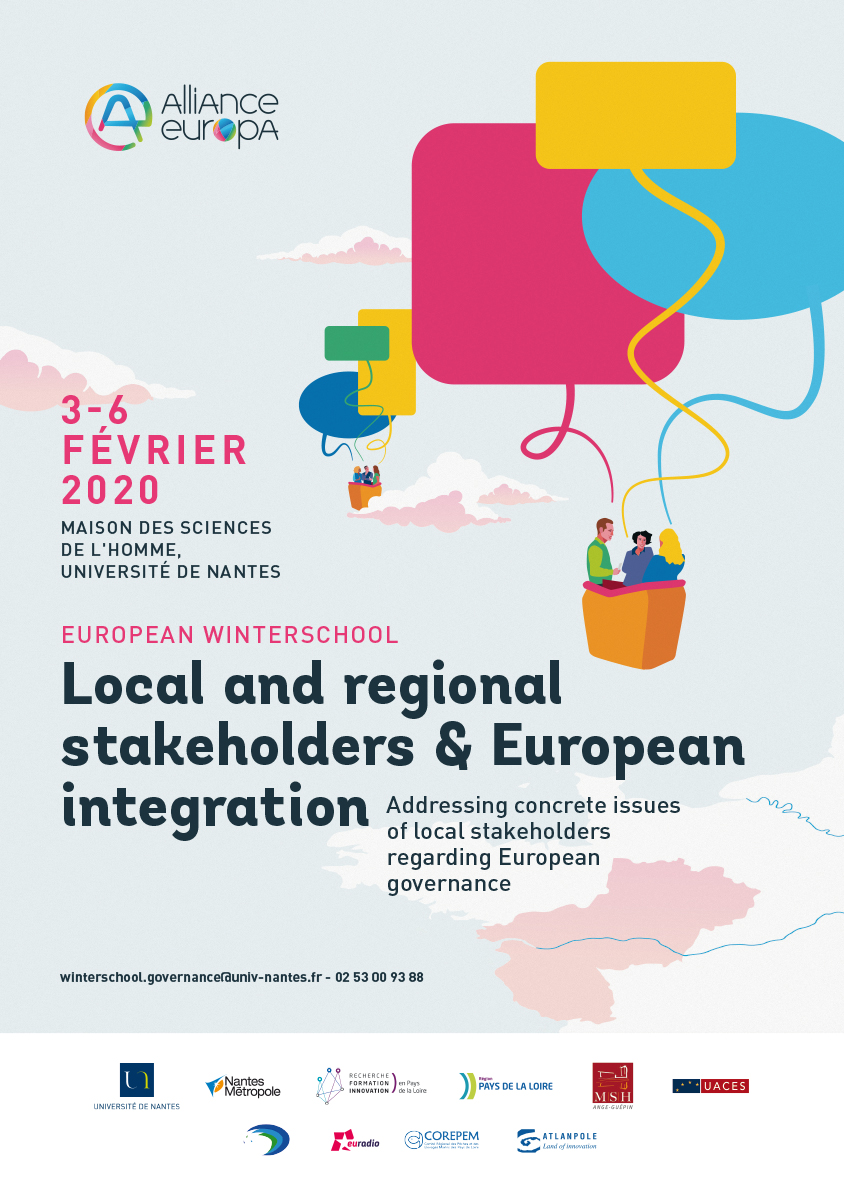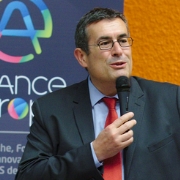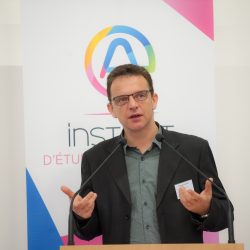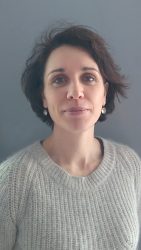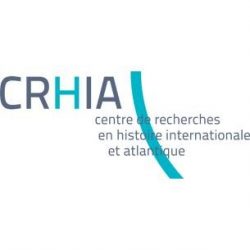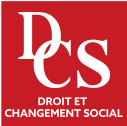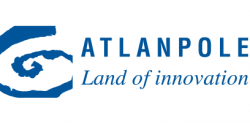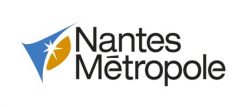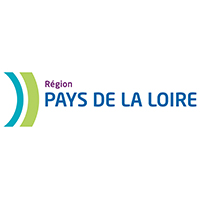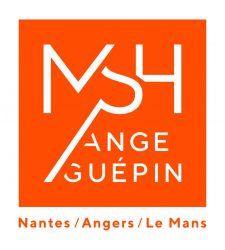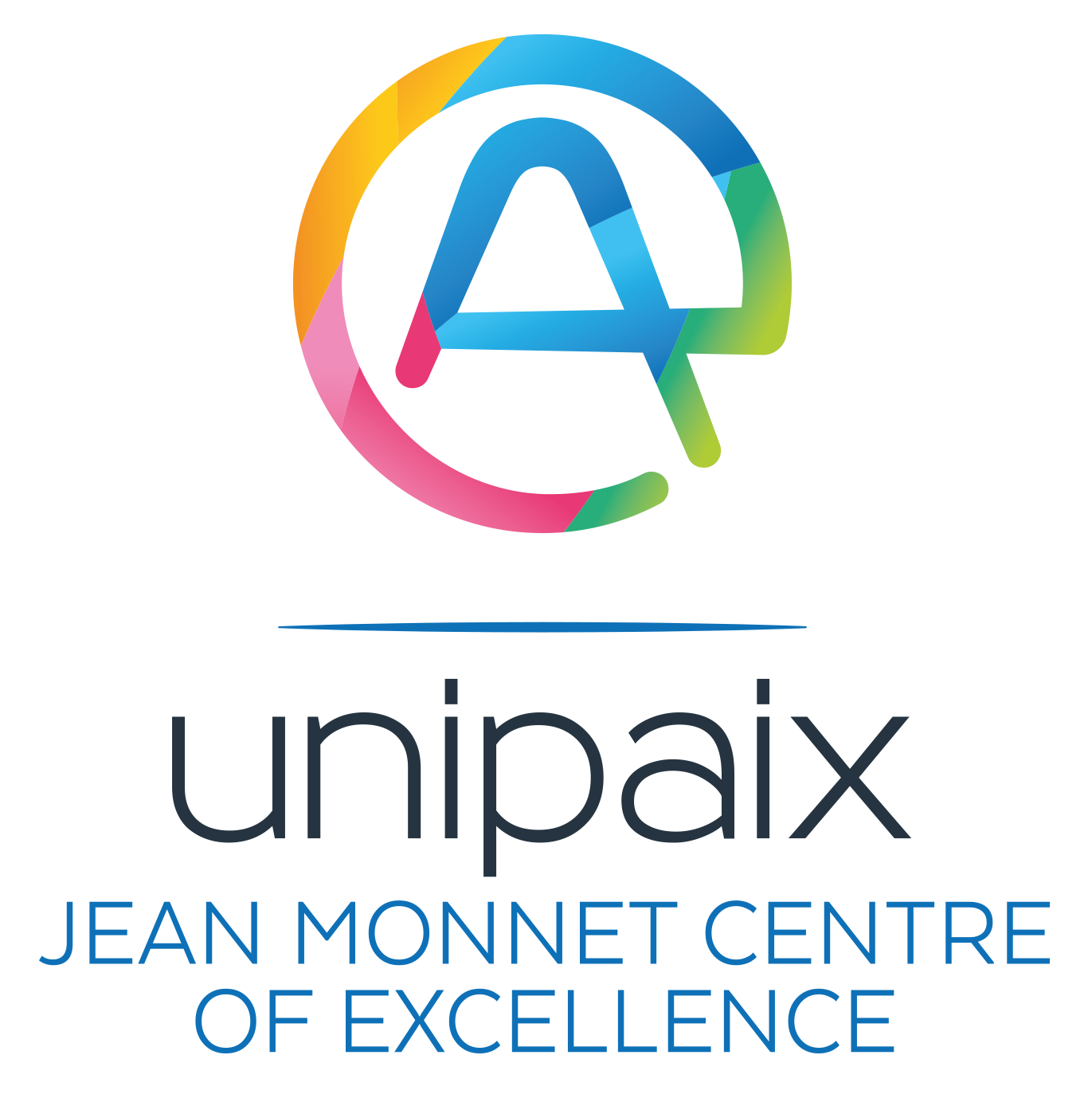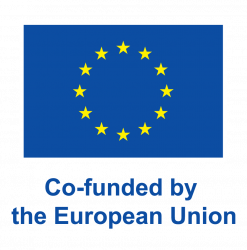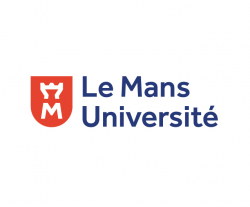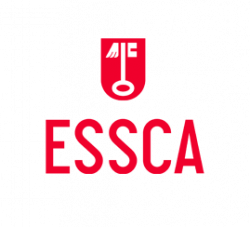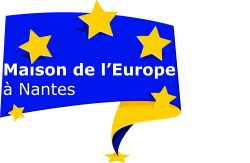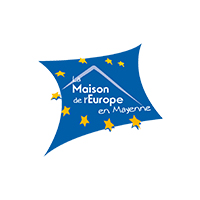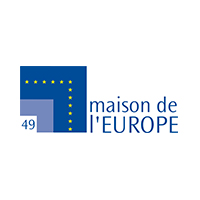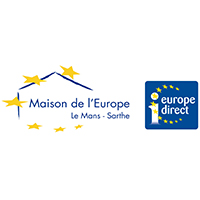The Alliance Europa Institute for European and Global Studies organised a 4-day winter school bringing together PhD students from the Loire region and from various countries to address the issues of the Loire actors concerning Europe.
From 3 to 6 February 2020, 17 PhD students in the humanities and social sciences from 11 different nationalities assumed the role of consultants to offer a new multidisciplinary perspective to local players: public institutions, private organisations, associations and the media in the Loire region. They have drawn up a diagnosis in order to provide the client with answers to questions about:
– Influencing and networking strategies to take part in the development of European policies and to find means to influence them,
– Ways of seizing European opportunities at local level,
– Raising local and regional awareness about European issues.
Project outline
Since the 1980s, the assertion of local and regional actors in European integration has been facilitated by major developments, such as the acceleration of the globalisation process, which is contributing to the end of the monopoly of the state as the sole legitimate actor in foreign policy and to the assertion of a transnational society across national borders, but also the processes of decentralisation or devolution of powers that are extending the competences of subnational authorities, including towards foreign policy. At the same time, the European Union has instituted a system of multilevel-governance involving local and regional authorities, in a more or less close relationship with the states. The expansion of European Union policies and their funding capacity has become one of the major issues for territorial policies and for all political and socioeconomic actors. These actors have gathered into networks in order to integrate more fully into European governance and try to influence decision-makers. The numerous crises on the continent have not weakened the process. On the contrary, they allow to imagine a different Europe, in which citizens could be more closely involved, even at the most local scale, relying on dynamic civil societies. Local and regional authorities can take measures to raise awareness, implement information and communication policies about Europe so as to strengthen ownership of these issues by their populations.
This interdisciplinary field of research makes it possible to approach differently the study of European integration, which happens through grassroots movements and not only in national capitals and common institutions. Territorial specificities and singularities are many in Europe, but the study of the European actions, policies and strategies of actors from Nantes and the Loire region, on a territory where numerous citizen initiatives were born, will be part of a comparative vision thanks to the international opening of our winter school.
Project course
This winterschool was composed of academic lectures, a discovery course on consultancy and multidisciplinary teamwork to answer practical questions from local actors.
17 PhD students from the Loire region and from abroad, supported by teacher-researchers in the humanities and social sciences, met for 4 days to respond to commissions from local actors and to help them advance their reflection as concerns the European dimension of their activity. Various local actors from the Loire region were involved: public institutions, private organisations, associations and the Loire region media.
The event took place in French and English, depending on the working groups.
Our participative and innovative model favoured exchanges between doctoral students working in the field of European and international studies and non-academic actors, in order to develop new professional skills in the field of consultancy, at the service of the socioeconomic world, the media, civil society and local authorities.
Scientific Committee
MICHEL CATALA
Professor of Contemporary History at the University of Nantes - Director of the Institute for European and Global Studies.
ARNAULD LECLERC
Professor of political science at the University of Nantes and director of the Maison des Sciences de l'Homme Ange-Guépin from 2015 to 2020. Holder of the “Telos, Ethos, Nomos Europa” Jean Monnet Chair. Coordinator of Alliance Europa's Axis 1 "Governing Europe in a globalised world".
A member of the Law and Social Change Laboratory (CNRS/University Joint Research Unit n°6297), Arnauld Leclerc is a specialist in political theory applied to Europe. He directs the Master 2 in Political Science of Europe and created in 2011 an original selective bachelor’s degree dedicated to the multidisciplinary study of Europe. All the classes he teaches relate to European studies, contributing to the vitality of this field and to the debates on European issues through his regular participation in public debates and the organisation of numerous scientific and extra-academic events. He is the president of Euradio, a radio school specialising in European issues, welcoming students from all over Europe every year and broadcasting in several languages.
He is the coordinator of the Chair of European Philosophy project held by philosopher Jean-Marc Ferry, and the author of several collective works including Les intellectuels et le pouvoir. Déclinaisons et mutations (Presses Universitaires de Rennes, 2012), Conclusion : La citoyenneté européenne en temps de crise and L’Europe : crise et critique (Presses de l’Université de Paris-Sorbonne, 2016, 2017) and Du mot au concept. La démocratie comme intellectualisation de la dispute sociale (2017), L’Europe face au défi des religions: construire un espace public par-delà la sécularisation (2017). His research themes are the the philosophy of Europe, the theory of democracy and the philosophy of the university.
See the page of the “Télos Ethos Nomos Europa” Chair.
JENNY RAFLIK GRENOUILLEAU
JENNY RAFLIK GRENOUILLEAU
Professor of Contemporary History at the University of Nantes and member of the Centre de Recherches en Histoire Internationale et Atlantique.
Research themes:
– the history of European integration,
– terrorism and globalisation.
ELISE ROULLAUD
Post-doctoral student at the Schengen Chair held by Yves Pascouau.
A doctor in political science from the Lumière-Lyon2 University, her research focuses on the construction of the European political space.
Her post-doctorate is funded by LABEX EHNE and the Université Bretagne Loire.
The Research Centre for Atlantic and International History (EA 1163 – Universities of Nantes and La Rochelle)
The Research Centre for Atlantic and International History (EA 1163 – Universities of Nantes and La Rochelle)
The Research Centre for Atlantic and International History (EA 1163 - Universities of Nantes and La Rochelle) is one of the major historical research centres in Western France, approved by the Ministry of Higher Education and Research as part of the five-year contract 2017-2021.
This laboratory brings together researchers in ancient history, medieval history, modern history, contemporary history, literature and languages, totalling 151 members (48 full professors, 9 emeritus professors, 3 other researchers, 4 post-docs, 80 doctoral students and 7 administrative and technical staff) and 90 associate researchers around a common theme: “From the world to the Atlantic, from the Atlantic to the world: methods, spaces and actors of international exchanges from the Antiquity to the present day”.
https://www.crhia.fr/en
Droit et changement social, UMR 6297 CNRS (University of Nantes)
Droit et changement social, UMR 6297 CNRS (University of Nantes)
DCS (Law and Social Change) is a joint research unit between CNRS and the University of Nantes, with a legal focus and whose aim is to develop interdisciplinary relations. The common basis of the laboratory lies in its overall objective: to understand the role of law in the transformations of contemporary society. DCS emphasizes the observation of practices and approaches for evaluating the effectiveness of legal norms.
http://dcs.univ-nantes.fr
Our partners
Nantes University
Nantes University offers courses from bachelor’s to master’s degrees and excellence research projects concerning Europe in a wide range of disciplines in the humanities and social sciences.
It is home to the Institute for European and Global Studies, which implements the Alliance Europa programme.
https://www.univ-nantes.fr
Région Pays de la Loire
The Pays de la Loire Region is a local authority created in 1982.
The Pays de la Loire Region supports the Alliance Europa programme as part of its encouragement to Research, Education and Innovation in Pays de la Loire.
The regional territory in a few words: the Pays de la Loire Region is a young and dynamic territory with a population of 3.8 million inhabitants and which attracts more than 25,000 people every year. The region is made up of 5 departments (Loire-Atlantique, Maine-et-Loire, Mayenne, Sarthe and Vendée).
http://www.paysdelaloire.fr
Nantes Métropole
Nantes Métropole financially supports the Alliance Europa programme in its research, education and innovation components within the framework of the “Campus Nantes” – Metropolitan Higher Education and Research Development Plan.
The Nantes agglomeration also supports an associative network involved in European issues and is actively engaged in European networks. It thus contributes to the dynamism of the European Idea Factory.
https://www.nantesmetropole.fr
UACES: Exchanging ideas on Europe
UACES: Exchanging ideas on Europe
UACES - The academic association for contemporary European studies - is an international association which brings together teacher-researchers, students and professionals interested in Europe and the European Union.
UACES aims to develop education for the general interest through the promotion of teaching and research in the field of European studies.
UACES implements various activities:
– organisation of events and conferences,
– funding for the research activities of the network’s members,
– collaborations for the publication of books and journals,
– support for research networks.
The Alliance Europa Institute of European and Global Studies belongs to this international network and supports the participation of the Institute’s members in the annual conferences of UACES through the funding of mission expenses.

